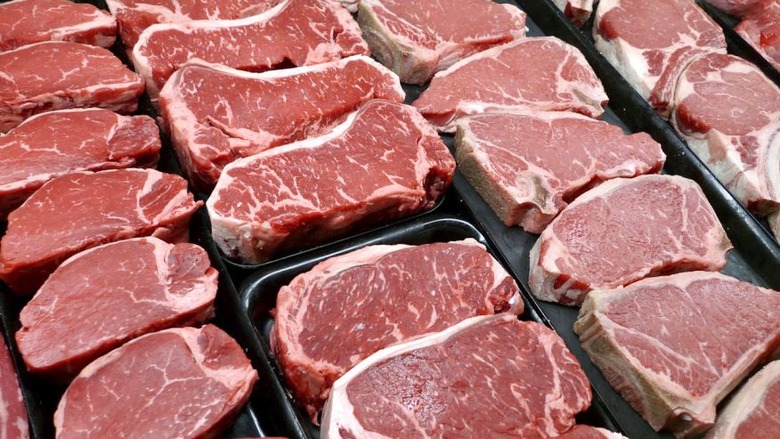Denmark Considers Tax On Beef, Other Red Meats To Combat Climate Change
The council, an independent body that advises the government, said this week that Danes have an ethical obligation to fight climate change. And to push them to do that, it called for a "climate tax" on red meat.
According to The Local, the U.N. Food and Agriculture Organization has determined that 18 percent of all greenhouse gas emissions – more than the total exhaust from all forms of transportation – comes from animal agriculture. Raising cattle not only contributes 10 percent of those emissions, but it also takes11,360 gallons of fresh water to produce just over two pounds of beef.
Beef also requires 28 times more land and 11 times more water to produce than pork or chicken, and it emits five times their climate-changing gases, according toThe Guardian.
But would a tax on red meat actually lead people to switch from chops to tenderloin to tofu?
Yes, the council says. "Danes are ethically obligated to change their eating habits," it said, but they won't lower their red meat consumption just because it's the "right thing" to do.
"An effective response to climate-damaging foods that will also contribute to raising awareness of climate change must be united, which requires that society sends a clear signal through regulation," council spokesman Mickey Gjerris said in a press release.
In the U.S., several celebrities including Natalie Portman, Woody Harrelson and even Arnold Schwarzenegger have admonished meat-heavy diets for contributing to rising greenhouse emissions and called on the public to consume fewer animal proteins.
But critics of the council's proposed tax say it could end up hurting the country with very little benefit to the environment.
Thomas Danielsen, a spokesman for Denmark's governing party, said a climate tax would be a "bureaucratic monster," The Local reported.
Danielsen told Danish broadcaster DR, "Maybe it would get beef consumption to fall in Denmark, but it wouldn't do much of anything for the world's CO2 emissions."
Related:
- Disney World unveils 'Frozen' ride and sunset safari this summer
- London's first nude restaurant already has a waiting list of 25,000
This article was originally published on April 27, 2016
